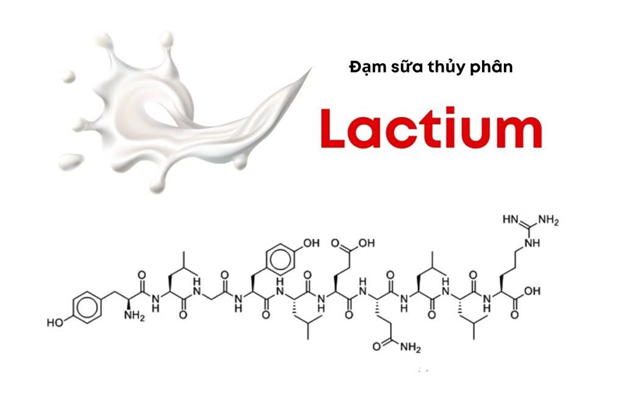 English
EnglishNutrition and the role of sleep support in the elderly
Sleep is an essential biological process that allows the body to restore itself, consolidate memory, and balance hormones. However, the experience of sleep often changes markedly as we age. The deep, uninterrupted sleep of youth gradually gives way to a lighter, more disrupted sleep, characterized by difficulty falling asleep and frequent awakenings during the night.

Sleep quality and age are closely related
This leads to a familiar paradox: despite spending a lot of time in bed, older people often feel tired and sluggish the next day. However, modern science has disproved the notion that this is an inevitable law of aging. There is growing evidence that shows a deep link between nutrition and sleep quality. Providing the right micronutrients for neuroregulation is one of the safest and most natural keys to for the elderly to regain full sleep.
Why sleep quality often declines with age?
To find an effective intervention, we first need to understand the underlying factors that cause poor sleep quality in older adults.
Natural physiological changes of the body
The aging process causes many major changes in the sleep-regulating system. A typical example is the decrease in the production of melatonin, a hormone known as the “signal of darkness” due to the gradual calcification of the pineal gland. Melatonin plays a role in signaling the body that it is time to rest and initiate sleep. When the concentration of this hormone decreases, the circadian rhythm becomes less distinct and makes falling asleep more difficult.

The aging process causes several sleep changes in older adults
In addition, there are also changes in the structure of sleep in the elderly. Normally, our sleep is divided into different stages. In the elderly, the time spent in the deep sleep stage (N3 or slow-wave sleep), which is the most important stage for physical recovery and memory consolidation, is often significantly shortened. On the contrary, the time spent in light sleep (N1, N2) and the number of times waking up during the night (Wake after sleep onset – WASO) increases, causing sleep to be interrupted and less effective.
Psychological and comorbid factors
Age often comes with health problems that can directly reduce sleep quality. Chronic pain from musculoskeletal conditions such as osteoarthritis and rheumatoid arthritis makes it difficult to find a comfortable sleeping position. Other conditions such as cardiovascular disease and respiratory problems are also common causes of sleep disorders in older adults.
Psychologically, worries about health, loneliness, or life changes can keep the nervous system on alert, indirectly preventing the relaxation needed to fall asleep. This creates a vicious cycle: insomnia causes anxiety, and anxiety about not being able to sleep makes insomnia worse.
Nutritional deficiencies – the silent factor that reduces sleep quality

Nutritional deficiencies are one of the factors that reduce sleep quality
An often overlooked factor that has a huge impact on sleep in the elderly is nutrition. Many older adults are at risk of deficiencies in important micronutrients due to poor diet, reduced absorption, or side effects of certain medications. A deficiency in vitamins and minerals involved in the production of neurotransmitters and hormones that regulate sleep can exacerbate sleep problems. Fortunately, this is the factor that we can intervene most proactively and effectively through a scientific diet.
Golden nutrients support physiological sleep for the elderly
Modern nutritional science has identified a group of micronutrients that can directly impact sleep regulation, which are the three nutrients: Magnesium, Vitamin B6 and Lactium.
Magnesium – The “Relaxation Mineral” of the nervous system
Magnesium is an essential mineral that participates in more than 300 enzyme reactions and plays a central role in maintaining the stability of the nervous system. Magnesium is known as the body’s natural “relaxation mineral”. The mechanism of action of magnesium in supporting sleep is diverse. This mineral acts as an agonist of GABA (Gamma-Aminobutyric Acid) receptors, the main inhibitory neurotransmitter in the brain, allowing to calm nerve activity and promote relaxation. At the same time, magnesium also has the ability to reduce the activity of NMDA receptors, which have the effect of stimulating the nervous system.

Magnesium – a mineral that helps regulate sleep
In addition, Magnesium also relaxes muscles, reduces symptoms of stiffness or cramps at night. This is one of the common causes of sleep disruption in the elderly. A placebo-controlled clinical trial showed that Magnesium supplementation significantly improved sleep time, sleep efficiency, and reduced morning cortisol levels in older adults with insomnia.
Vitamin B6 – “Allies” in the production of melatonin and serotonin

Vitamin B6 – enables production of natural sleep-regulating hormones from the body
If sleep is considered a house, then Vitamin B6 is the diligent builder, indispensable in the process of building that house. Vitamin B6 is an important factor in the process of amino acid metabolism, especially in the biosynthesis of neurotransmitters. The role of Vitamin B6 in sleep is extremely necessary for the conversion of the amino acid tryptophan into serotonin, a hormone that helps regulate mood and brings a feeling of happiness and relaxation. Then, serotonin is the precursor for the body to synthesize melatonin, the “sleep signaling” hormone. A deficiency in Vitamin B6 can disrupt this important cycle, leading to low melatonin levels, causing difficulty sleeping and mood swings. Therefore, sufficient supply of Vitamin B6 is a necessary condition for the body to be able to naturally produce sleep-regulating hormones.
Lactium – Clinically proven natural relaxant

Lactium – a valuable nutrient from milk that has been clinically proven to support good sleep.
Lactium is a bioactive substance hydrolyzed from casein protein in milk. In essence, it is a decapeptide (a chain of 10 amino acids) with a special structure, acting as a molecule that “mimics” the effects of neurotransmitters to relax. Lactium’s mechanism of action is very sophisticated but safe: it selectively binds to GABA-A receptors in the brain, allowing to enhance the activity of the parasympathetic nervous system. This is the system responsible for the body’s rest and relaxation. Lactium has also been shown to reduce cortisol levels – the main stress hormone in the blood.
Most importantly, the effectiveness of Lactium has been proven through clinical studies on humans. These studies show that Lactium supplementation significantly improves sleep quality, reduces the time it takes to fall asleep, and limits middle-of-the-night awakenings. Notably, Lactium is safe without causing unwanted side effects such as excessive sedation, fatigue the next morning, or drug dependence like conventional sleeping pills.
In sleep support nutrition, the effectiveness does not lie in a single ingredient but in the synergistic effects of the above scientifically calibrated micronutrients. Researched and developed by Nutricare and the Nutricare Medical Nutrition Institute – USA (NMNI-USA), Nutricare Gold nutritional product supports the improvement of physiological sleep through a multi-mechanism approach. The product combines Lactium, a clinically proven active ingredient to reduce stress, with the essential micronutrient duo Magnesium and Vitamin B6. This combination creates a dual effect: Magnesium contributes to the relaxation of the nervous system and muscles, while Vitamin B6 is an indispensable cofactor for the body’s natural melatonin synthesis. When combined with Lactium, they create a comprehensive physiological sleep support mechanism from the root.
On that specialized sleep support foundation, the formula is also enriched with more than 56 essential nutrients, including easily absorbed Whey protein to maintain muscle mass, antioxidants (Vitamin A, C, E & Selenium) to enhance resistance and FOS fiber to support digestion.
With this multi-dimensional approach, Nutricare Gold is not only a sleep support solution, but also a comprehensive nutritional strategy, allowing older adults to improve their quality of life and restore overall health.
Nutritional advice to improve sleep in the elderly
In addition to supplementing specialized micronutrients, building a “sleep-friendly” diet and lifestyle is an indispensable pillar to achieve sustainable results.
Foods and habits to prioritize in the evening
- Foods rich in Tryptophan: Tryptophan is an amino acid that is a precursor to serotonin and melatonin – important hormones regulating physiological sleep. Foods such as turkey, warm milk, bananas, oats and nuts are rich sources of tryptophan.

Foods rich in Tryptophan – the preferred choice for insomniacs
- Whole grains: A small portion of whole grains like oats or brown rice at dinner can help release insulin slowly. Insulin allows tryptophan to cross the blood-brain barrier more easily and is more efficiently converted into serotonin.
- Caffeine-free herbal tea: Teas such as chamomile tea, passionflower tea or lotus heart tea contain natural compounds (apigenin, vitexin) that have a mild sedative effect, relaxing the body and preparing for sleep.
- Establish a relaxation routine: About 30 – 60 minutes before going to bed, take time for relaxing activities such as reading a book, listening to soft music, soaking your feet in warm water or doing simple deep breathing or meditation exercises.
Habits and foods to avoid before bed
- Caffeine and alcoholic beverages: Caffeine is a stimulant that can stay in the body for hours and interfere with sleep. Therefore, avoid coffee, strong tea, and energy drinks after 2 p.m. Alcohol may help you fall asleep initially, but it will disrupt the structure of deep sleep in the second half of the night and cause you to wake up tired.

Caffeine and alcoholic beverages cause fatigue and negatively affect sleep
- Large and spicy meals: A meal that is too heavy, greasy or spicy forces the digestive system to work hard, causing discomfort and disrupting sleep. Therefore, the elderly should eat a light dinner at least 2-3 hours before bedtime.
- Drink too much water: Older people should limit drinking too much water right before bedtime to avoid having to wake up to go to the bathroom many times during the night.
- Use electronic devices and vigorous exercise: Blue light from phones, tablets and TVs inhibits melatonin production. Therefore, older adults should stop using these devices at least 1 hour before bedtime. Vigorous exercise too close to bedtime also increases body temperature and stimulating hormones, indirectly causing difficulty sleeping.
Conclusion
Good sleep in the elderly is not a matter of luck, but the result of a scientific lifestyle and diet. Instead of accepting long sleepless nights as an inevitable part of aging, we can completely proactively improve sleep through proper nutrition. Understanding and supplementing key nutrients such as Lactium, Magnesium and Vitamin B6 is a safe, effective solution based on a solid scientific foundation. Nutrition is not only a source of energy for daytime activities but also a powerful natural therapy to take care of mental health and regain a full night’s sleep.
References:
|
